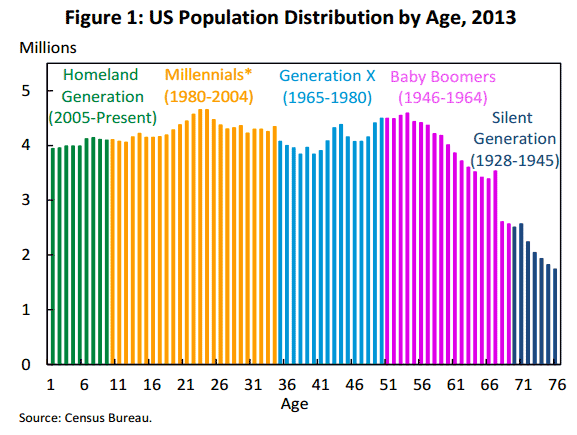
From the report’s introduction:
Millennials, the cohort of Americans born between 1980 and the mid-2000s, are the largest generation in the U.S., representing one-third of the total U.S. population in 2013. With the first cohort of Millennials only in their early thirties, most members of this generation are at the beginning of their careers and so will be an important engine of the economy in the decades to come.
The significance of Millennials extends beyond their numbers. This is the first generation to have had access to the Internet during their formative years. Millennials also stand out because they are the most diverse and educated generation to date: 42 percent identify with a race or ethnicity other than non-Hispanic white, around twice the share of the Baby Boomer generation when they were the same age. About 61 percent of adult Millennials have attended college, whereas only 46 percent of the Baby Boomers did so.
Yet perhaps the most important marker for Millennials is that many of them have come of age during a very difficult time in our economy, as the oldest Millennials were just 27 years old when the recession began in December 2007. As unemployment surged from 2007 to 2009, many Millennials struggled to find a hold in the labor market. They made important decisions about their educational and career paths, including whether and where to attend college, during a time of great economic uncertainty. Their early adult lives have been shaped by the experience of establishing their careers at a time when economic opportunities are relatively scarce. Today, although the economy is well into its recovery, the recession still affects lives of Millennials and will likely continue to do so for years to come.
Download Report: https://www.whitehouse.gov/sites/default/files/docs/millennials_report.pdf
